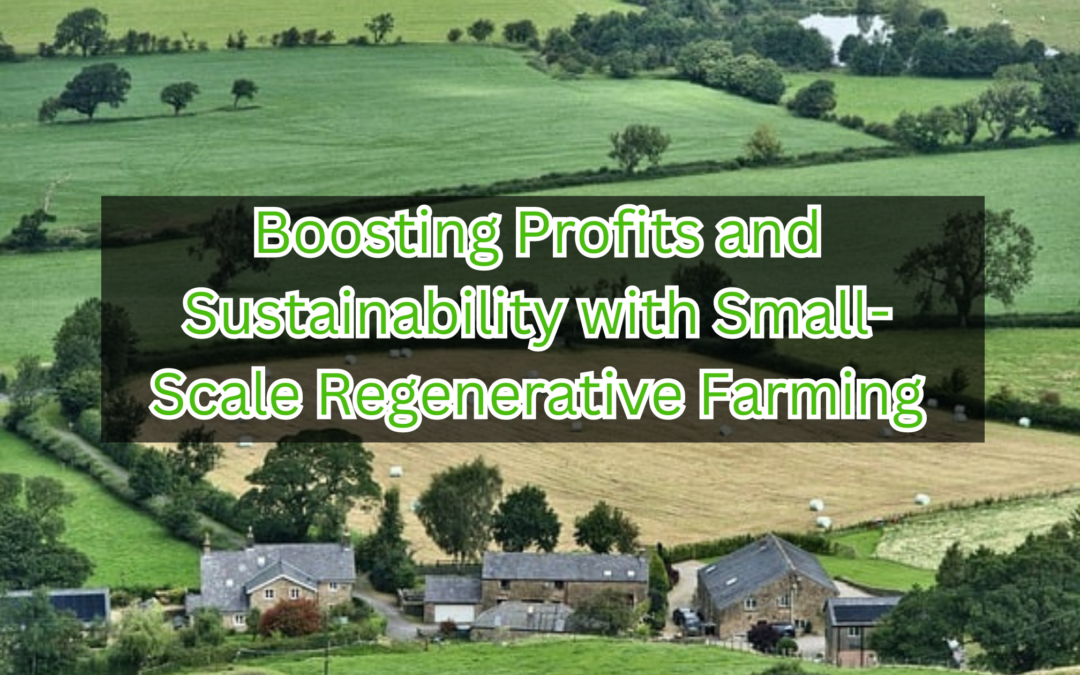Regenerative farming is more than just a buzzword; it’s a practical solution for those looking to farm in a way that benefits both the environment and their wallets. Many farmers, customers, and even legislators are now curious about how these sustainable food systems work. Specifically, they want to know if small-scale regenerative farms can be financially viable. Spoiler alert: they can!
Lower Costs with Natural Inputs
One of the most significant financial perks of small-scale regenerative farming is reduced input costs. Unlike traditional farming, which relies heavily on expensive synthetic fertilizers, pesticides, and herbicides, regenerative farming uses natural inputs. Think compost, cover crops, and integrated pest management. By cutting down on these costly chemical inputs, farmers not only save money but also boost soil fertility and crop yields over time. Moreover, techniques like crop rotation and no-till farming improve soil structure and moisture retention, which keeps costs even lower.
Diverse Revenue Streams: More than Just Crops
Small-scale regenerative farms don’t just rely on one type of crop or product. Instead, they often grow a variety of crops, raise animals, and even incorporate agroforestry. This diversity means they have multiple revenue streams. For example, a farm might sell fruits, vegetables, eggs, meat, and even compost. They might also offer agritourism activities, such as farm tours or workshops. Diversification is key—it spreads financial risk and protects against crop failures or market fluctuations. And, because regenerative farms are usually more resilient to climate change, they are better prepared for extreme weather events.
Premium Markets: Sell Directly to Your Customers
Access to premium markets is another factor that makes small-scale regenerative farms financially sustainable. As consumers become more aware of environmental issues, they are willing to pay a premium for products labeled as organic, regenerative, or sustainably sourced. Rather than going through traditional supply chains, many small-scale regenerative farmers sell directly to customers. They do this through farmers’ markets, community-supported agriculture (CSA) programs, or even online platforms. This direct-to-consumer approach not only cuts out the middleman but also allows farmers to build strong relationships with their customers, encouraging loyalty and repeat business.

Financial Support and Government Incentives
Government Grants for Farmers: Switching to regenerative farming can seem daunting, especially when it comes to the initial investment. However, many regions offer financial incentives, grants, and technical support to farmers willing to make the switch. These resources can help offset the costs of new equipment or infrastructure. Additionally, some areas provide tax breaks or reduced land-use fees for those practicing regenerative agriculture, further increasing overall profitability.
Overcoming Challenges with the Right Support
Of course, no farming method is without its challenges. Transitioning to regenerative farming requires hard work and a deep understanding of natural processes. Small-scale farmers may face obstacles such as limited market access, capital, and land. However, with the right guidance, training, and support, these challenges can be overcome.
In fact, many small-scale regenerative farms are proving that it’s possible to be both financially and environmentally sustainable.
Join the Movement for Regenerative Farming
So, are you ready to take the next step? Regenerative farming isn’t just a trend—it’s the future of sustainable agriculture. By adopting regenerative practices, you’re not only protecting the environment but also ensuring the financial sustainability of your farm. Join the Ecolonomic Action Team today and become part of a growing community dedicated to making the planet better, one farm at a time.
Ready to start? Reach out to us to learn more about how you can make your farm more sustainable and profitable. Let’s work together to create a brighter, more sustainable future! Join our EAT Community for more sustainable ideas.



